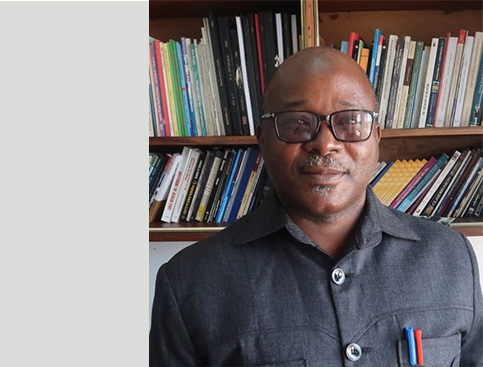Vision & mission of the Centre
Vision
To become a center of excellence for advancement and generation of knowledge in the intrinsic link between society and religion and its use in national development.
Mission statement
To stimulate and coordinate research and training on society and religion in Tanzania, to strengthen the already existing expertise and promote capacity building in this field.
History
- The university of Dar es salaam started as the University College of the University of London in 1961.
- In 1963, the University College of Dar es salaam became the University College of the University of East Africa together with Makerere and Nairobi.
- In 1970 the University of Dar es Salaam became a fully fledged national University and acquired the name University of Dar es Salaam.
- Unlike Makerere and Nairobi Universities, the University of Dar es Salaam never established Department of Religious studies.
- Religion and ethnicity were seen as issues that foster disunity.
- Marxist influence at the University of Dar es salaam; religion was regarded as an ‘opium of the masse’.
This centre will conduct studies on the relationship between society and religion.Religion is any form of beliefs and practices which will there not be limited to mainstream religions (Christianity or Islam or African Religions) but will include other contemporary belief systems which are not related to supernatural forces. E.G. Civic religion, mass consumerism, belief in sport, secularism, etc.
- To generate knowledge on the dynamics of society and religion and their role toward social harmony and development
- To carry out research and consultancy on the dynamics of society and religion in national tolerance, identity creation and development
- To disseminate results of the said research to interested parties including Government policy makers and others who might need such information.
- To pass the acquired knowledge and experiences to the new and forthcoming generations including potential leaders.
Collaborator
We collaborate with:- Centre for Studies in World Christianity and Interreligious Relations, Radboud University.
- Religion and Society Research Centre, University of Uppsala.
- Research Institute for Theology and Religion, University of South Africa.
- SORRECE represents the African Association for the Study of Religions (AASR) in Tanzania. See http://www.a-asr.org
Suggested research areas:
Topics on Religion, Society, and Environment
| Cohesion/Unity and State Relationship | Environment | Development and Health |
|---|---|---|
| Religion and Violence/Conflict | Religious Authority and Environmental Challenge | Religion, Education and Health |
| Intra/Inter-Religious Relations | Eco-Feminism and Religious Dialogue | Religious Perspectives on Health, Medicine, and the Environment |
| Ecology, Environment, and Political Responsibility | Religion, the Environment, and Food Security | Religion and the Economics of Climate Change |
| Religion and State Relations | Ecology and Economics in Religious Perspective | Faith-Based Organizations and Sustainable Development |
| Religion, Biodiversity, and Global Bio-Politics | Religious, Philosophical, and Ethical Perspectives on Ecology | Globalization and Religion |
| Identity Creation and Development | Comparative Religious View of Environmental Action | Religion and Social Change |
| Religious Pluralism and Religious Movements | Religion and Environmental Pollution | Secularism, Human Rights, and Religion |
| Social Development and Religious Freedom |
Publications
- Ndaluka, T., Vendelin Simon, Magolanga Shagembe, and Jonas Kinanda. 2021. Faith in the Times of Covid-19: Integrating Religion in the Fight against Covid-19 in Tanzania. In Folklore: 82, pp. 117-134.
- Ndaluka, T. 2020. Is Mimetic Desire a Root Cause of Religious Violence in Tanzania? An Analysis of Girardian – Mimetic Desire Theory. Tanzanian Journal of Sociology; Vol. 6, No. 1.
- Ndaluka, Thomas. Religious Discourse, Social Cohesion, and Conflict: Muslim-Christian Relations in Tanzania. Münster: LIT, 2012.
- Ndaluka, Thomas, and Frans Wijsen, eds. Religion and State in Tanzania Revisited: Reflections from 50 Years of Independence. Münster: LIT Verlag, 2014.
- Ndaluka, Thomas. Social Cohesion and Religious Intolerance in Tanzania. In R. Mukandala ed., The Political Economy of Change in Tanzania. Dar es Salaam: University Press, 2015, pp. 35-54.
- Ndaluka, Thomas. Is Mimetic Desire a Root Cause of Religious Violence in Tanzania? An Analysis of Girardian – Mimetic Desire Theory. Tanzania Journal of Sociology, Volume 6, June 2020. Read online.
- Frans Wijsen. Managing Religious Diversity in Tanzania. In E. Bongmba ed., Religion and Social Construction in Africa, London - New York: Routledge 2018, pp. 311-328.
- Wijsen, Frans & Peter Mosha. 2019. ‘BAKWATA is like a dead spirit to oppress Muslims’: Islamic Revivalism and Modes of Governance in Tanzania. Utafiti. Journal of African Perspectives, 14 (2), 223-241. DOI: 10.1163/26836408-14010013.
- Wijsen, Frans. 2020. Beyond Global Apartheid: Polarization and (de)Radicalization in Tanzania. Journal of Constructivist Psychology. DOI: 10.1080/10720537.2019.1676341.
- Mgumia, Jacqueline. Chuma Ulete as a Popularized Witchcraft Discourse in Small Businesses. Tanzania Journal of Sociology, Volume 6, June 2020, pp. 80–101.
- Mgumia, Jacqueline. Chuma Ulete: Business and Discourses of Witchcraft in Neoliberal Tanzania. Journal for the Study of Religion, 33 (1), 2020.
- Ndaluka, Thomas. Religious Radicalization in Africa Today as a Challenge to Faith-Based Actors in Different Sociopolitical Contexts. In J. Kambale J. & J. Motte eds., Peace Among the People: Interreligious Action for Peace and Inclusive Communities, Solingen, Foedus Verlag, 2020.
- Sundqvist, Josephine and Thomas Ndaluka. 2021. Toward Basic Health Justice: Grassroots Challenges in Church-Related Health Services in Tanzania. In V Päivänsalo, A Ahmad, G Zachariah, and M Stenlund eds., Faith-Based Health Justice: Transforming Agendas of Faith Communities, Minneapolis, Fortress Press, pp. 45-64.


